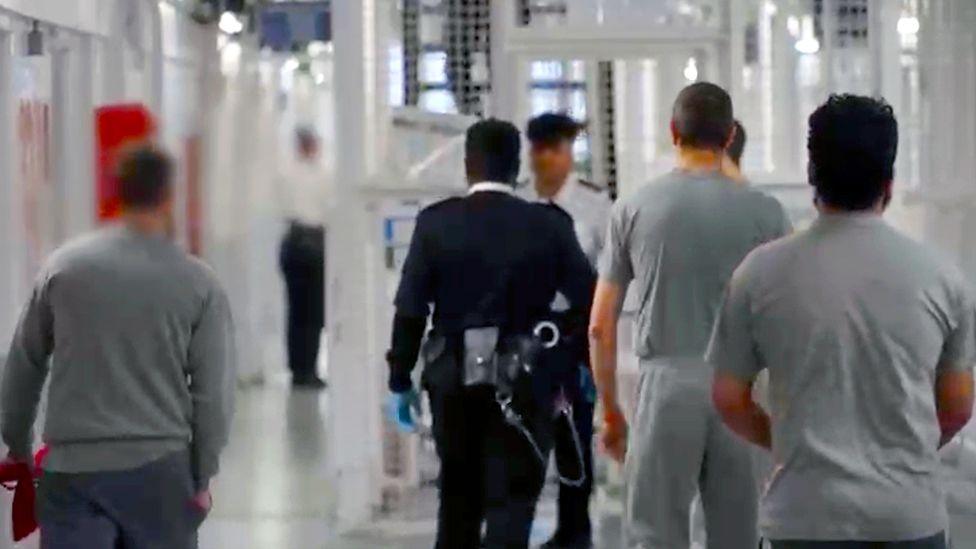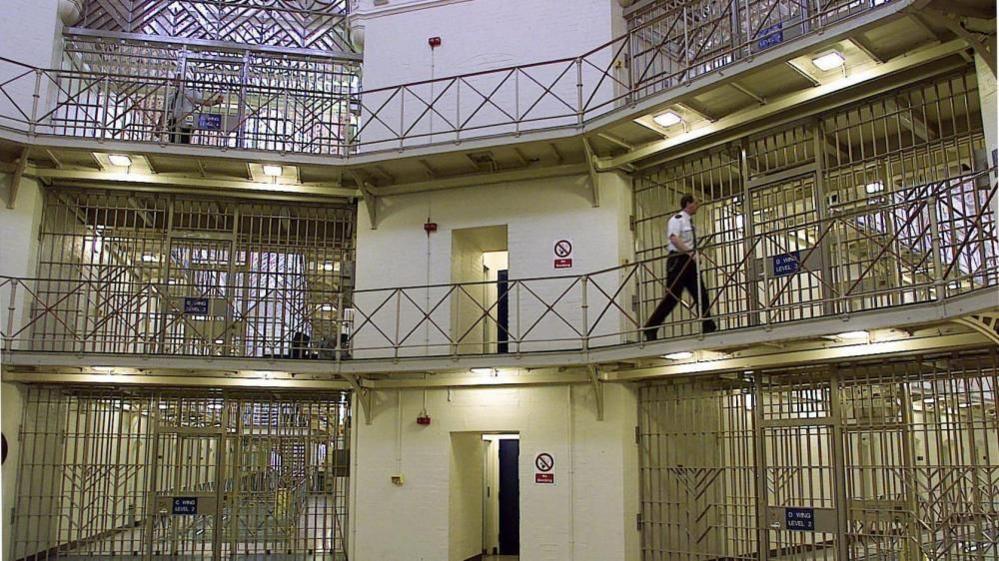Prisons becoming more dangerous - report

Of the 13 deaths recorded across Welsh prisons in the first six months 2024, 12 were at HMP Parc
- Published
Welsh prisons have become more dangerous over the past year, a report has shown.
From prisoner-on-prisoner assaults, violence against staff, self-harm incidents and drug-related deaths, the Cardiff University report found there had been a "drastic deterioration".
Homelessness when prisoners are released is also on the rise, the university-run Wales Governance Centre found.
The Ministry of Justice said the new government "inherited prisons in crisis" and is working to improve them.
Why are there so many people in Scotland's jails?
- Published11 October 2024
Prison population hits record high after riots
- Published30 August 2024
Prison inquiry to reopen due to concerns, MP says
- Published4 October 2024
Report author Robert Jones said the Welsh imprisonment rate is the highest recorded in the UK, with remand and recall "contributing significantly" to the rise in Welsh prisoner numbers.
He said the current early release scheme "is going to do little to alleviate the rise in homelessness".
Prisoner-on-prisoner assaults in Welsh prisons increased by 80% last year.
The analysis also showed that in 2023, assaults on staff rose by 69% and self-harm incidents increased by 53%.
Of the 12,914 individuals who self-harmed in prison in England and Wales in 2023, 890 had a recorded origin address in Wales.
HMP Parc saw the steepest rises, assaults on staff increased by 109%, self-harm incidents by 113% and self-harm incidents requiring hospital treatment grew by 190%.
Of the 13 deaths recorded across Welsh prisons in the first six months 2024, 12 were at HMP Parc.
Four of these are believed to be linked to substance misuse.
There was a 46% increase in the number of drug finds at the prison and 185% increase in amount of drug equipment found.
Homelessness among released prisoners trebled in 2022-23 and increased a further 51% this year - equivalent to 500 people.

Five people a week on average were released from HMP Cardiff as homeless in 2023/24
The data also showed Welsh female prisoners are still imprisoned in England because there are none in Wales, external.
In every 10,000 prisoners in Wales and England, there were 54 black people from Wales, compared to just 15 white people.
Some information was not released by the Ministry of Justice, including the number of Welsh women who were pregnant or gave birth in English prisons this year.
This was rejected as it was deemed to be outside the remit of the Freedom of Information Act 2000.
The Welsh prisoner population increased to its highest level at 5,034 since the Wales Governance Centre began collecting separated data.
Dr Jones said: "There seemingly remains very little appetite from Welsh and UK governments to understand how to address these problems in any serious way.
"The inaccessibility of Wales-only data on parental imprisonment, Welsh deaths in custody, as well as pregnancies and births – even when utilising freedom of information legislation – only serves to highlight the continuing problem."
The Welsh government said prisons and offender management are the UK government's responsibility.
It added it works with prisons and probation services where it has responsibilities such as health and social care.
Ruth Jones, of the Welsh Affairs committee, said she would encourage it to consider its response as soon as possible.
G4S, which runs Parc Prison said violence and self-harm rates has fallen between April and October 2024.
It said: "Drug finds have increased as a result of the very significant investment we have made in our searching capacity and capability."
The Ministry of Justice said: "The new government-inherited prisons [are] in crisis, and this report lays bare the stark reality inside our jails."
It said it has taken "immediate action" to address the problem and is "beginning the work of ensuring our prisons make better citizens not criminals".
Related topics
- Published5 September 2024

- Published15 October 2024

- Published10 October 2024
